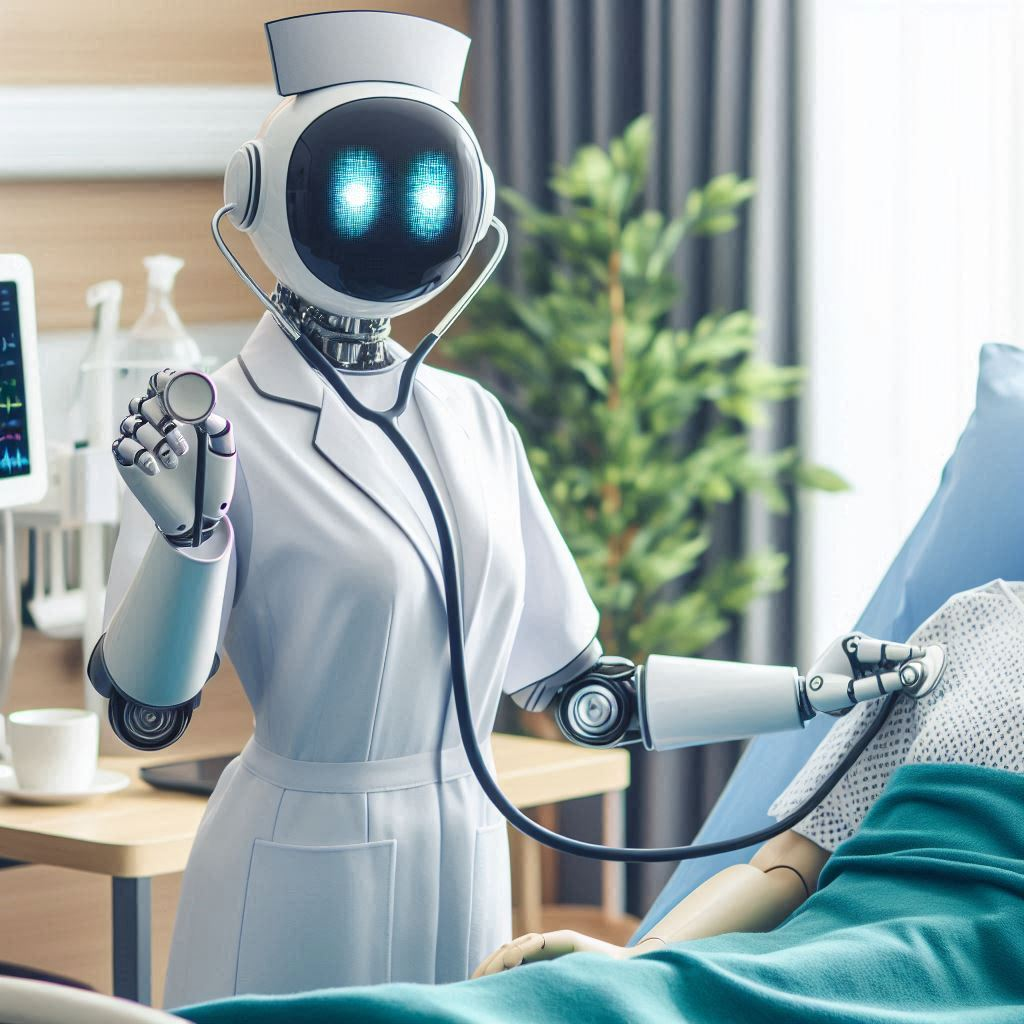
In the healthcare industry, Artificial Intelligence (AI) is ushering in a new era of innovation, efficiency, and improved patient care. Healthcare professionals, from doctors and nurses to administrators and researchers, can harness AI technologies to enhance diagnosis accuracy, streamline administrative tasks, and personalize patient treatment plans. Here are several AI innovations that are revolutionizing healthcare practices:
AI algorithms can analyze medical images such as X-rays, MRIs, and CT scans with high accuracy. These AI-powered diagnostic tools help healthcare professionals detect abnormalities, identify early signs of diseases, and provide timely interventions for patients, leading to improved outcomes and reduced diagnostic errors.
AI-driven predictive analytics models analyze patient data, including medical history, genetic information, and real-time health metrics, to forecast potential health outcomes. Healthcare professionals can use these insights to proactively manage chronic conditions, prevent hospital readmissions, and optimize personalized treatment plans for patients.
AI-powered virtual health assistants and chatbots provide patients with personalized medical advice, appointment scheduling, and medication reminders. These virtual assistants can triage patient inquiries, offer immediate responses to common medical questions, and alleviate administrative burdens on healthcare professionals, improving patient satisfaction and accessibility to care.
AI algorithms accelerate the drug discovery process by analyzing vast datasets, predicting molecular interactions, and identifying potential drug candidates. Healthcare professionals and researchers can leverage AI-driven tools to expedite research, reduce costs, and discover novel therapies for challenging medical conditions.
AI-enabled IoT devices and wearable sensors allow healthcare professionals to remotely monitor patients’ vital signs, medication adherence, and overall health status in real-time. These remote monitoring tools enable early detection of health complications, facilitate proactive interventions, and support continuity of care for patients outside traditional clinical settings.
AI-powered natural language processing (NLP) tools extract valuable insights from unstructured clinical notes and patient records within EHR systems. Healthcare professionals can use NLP to automate documentation tasks, improve data accuracy, and derive meaningful clinical insights to inform treatment decisions and care coordination.
AI technologies enhance surgical precision and safety by providing real-time guidance and predictive analytics during complex procedures. Surgeons can benefit from AI-assisted surgical robots and augmented reality tools that improve procedural outcomes, reduce surgical risks, and optimize patient recovery times.
By integrating these AI innovations into healthcare practices, healthcare professionals can optimize clinical workflows, enhance patient care quality, and contribute to advancements in medical research and treatment modalities in an increasingly digital healthcare landscape.
FAQ’s
1. How does AI improve medical imaging analysis? AI algorithms analyze medical images like X-rays and MRIs with high accuracy, helping healthcare professionals detect abnormalities early and provide timely interventions, reducing diagnostic errors and improving patient outcomes.
2. What role does AI-driven predictive analytics play in healthcare? AI-driven predictive analytics models analyze patient data to forecast health outcomes. Healthcare professionals use these insights to manage chronic conditions, prevent hospital readmissions, and tailor personalized treatment plans effectively.
3. How do AI-powered virtual health assistants benefit patients? AI-powered virtual health assistants and chatbots provide personalized medical advice, schedule appointments, and offer medication reminders. They streamline patient inquiries, enhance accessibility to care, and improve patient satisfaction by reducing administrative burdens on healthcare professionals.
4. How does AI contribute to drug discovery and development? AI algorithms accelerate drug discovery by analyzing large datasets and predicting molecular interactions. Healthcare professionals use AI-driven tools to expedite research, lower costs, and discover new therapies for challenging medical conditions.
5. What are the advantages of AI-enabled remote patient monitoring? AI-enabled IoT devices and wearable sensors allow real-time monitoring of patients’ vital signs and health status outside clinical settings. This facilitates early detection of health issues, proactive interventions, and continuous care, improving patient outcomes and reducing healthcare costs.
6. How does AI-powered NLP enhance electronic health records (EHR)? AI-powered NLP tools extract insights from unstructured clinical notes in EHR systems. They automate documentation tasks, improve data accuracy, and provide meaningful clinical insights to support treatment decisions and care coordination.
7. How does AI assist in surgical procedures? AI technologies enhance surgical precision and safety by providing real-time guidance and predictive analytics during complex procedures. AI-assisted surgical robots and augmented reality tools improve procedural outcomes, minimize risks, and accelerate patient recovery times.